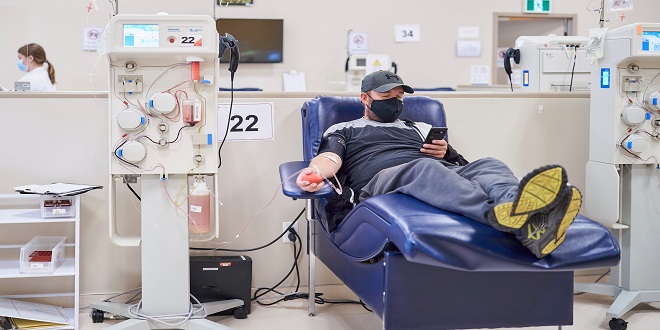Plasmapheresis refers to a medical procedure that removes antibodies from the blood. Antibodies play a crucial role in protecting our bodies from infections caused by foreign substances, such as bacteria and viruses. However, the immune system can sometimes produce antibodies that attack the body itself, resulting in autoimmune diseases. If you are suffering from kidney disease or another condition that affects your immune system, your doctor may recommend Houston plasmapheresis. Here is everything you should know about plasmapheresis.
How does plasmapheresis work?
Plasmapheresis removes plasma from your blood, which contains a range of proteins, antibodies, and other substances that can contribute to disease. The procedure typically involves the insertion of a needle into a vein in your arm, through which blood is drawn from your body and then plasma is separated from the other components.
Once the plasma has been carted away, it is replaced with a substitute, such as a saline solution or albumin. The substitute helps to maintain your blood volume and prevent a drop in blood pressure. The remaining blood is then returned to your body through the same needle used for plasma removal.
What conditions can plasmapheresis treat?
Plasmapheresis can help treat several conditions, including:
Kidney disease – Plasmapheresis can help people with kidney disease by removing harmful antibodies from their bloodstream. These antibodies can cause damage to the kidneys and impair their function. By removing them, plasmapheresis can help slow the progression of kidney disease and improve kidney function.
Autoimmune disorders – Plasmapheresis can also help people with autoimmune disorders such as lupus, rheumatoid arthritis, and myasthenia gravis. In autoimmune disorders, the immune system attacks the body’s own tissues, causing inflammation and damage. Plasmapheresis removes the antibodies and other immune system components causing inflammation, reducing symptoms, and improving quality of life.
Neurological disorders – Plasmapheresis may also treat neurological disorders such as Guillain-Barré syndrome and chronic inflammatory demyelinating polyneuropathy. Neurological disorders involve damage to the nerves, leading to weakness and numbness. Plasmapheresis removes the antibodies and other immune system components attacking the nerves, allowing them to heal.
Blood Disorders – Plasmapheresis can also help treat certain blood disorders such as thrombotic thrombocytopenic purpura (TTP) and hemolytic uremic syndrome (HUS). Blood disorders comprise the formation of blood clots in small blood vessels, leading to organ damage. Plasmapheresis can help remove the antibodies and other factors causing the blood clots, stopping progression of the condition.
What are the risks of plasmapheresis?
As with any medical procedure, plasmapheresis does carry some risks. The most common side effect is mild discomfort or bruising at the needle insertion site. Some people may also experience a drop in blood pressure during the procedure, which can cause dizziness or fainting.
More serious risks are rare but can include infection, allergic reaction, and damage to the blood vessels or nerves near the needle insertion site. Your doctor will discuss the risks and benefits of plasmapheresis with you before the procedure and will closely monitor you during and after the procedure to ensure your safety.
Call Kidney Specialists Center to learn more about plasmapheresis.
 Magazine Today
Magazine Today

